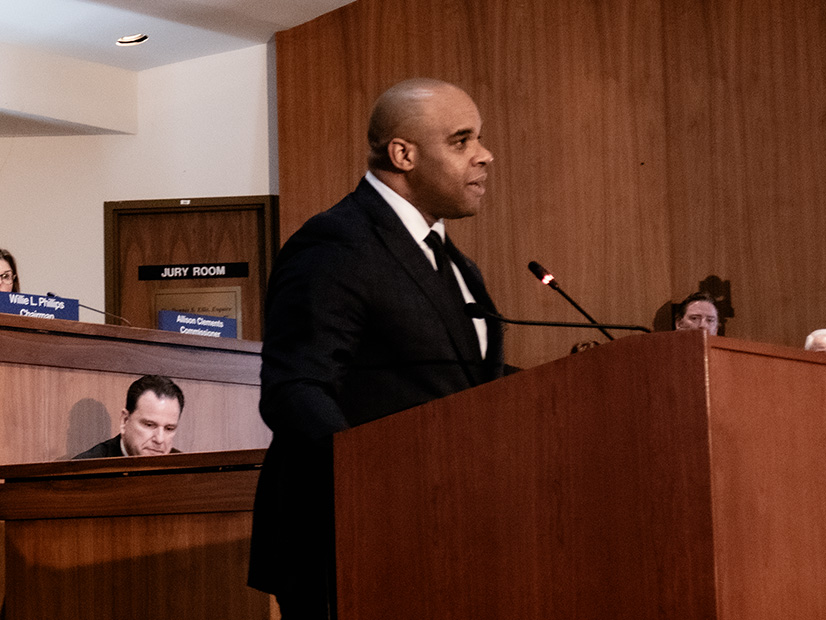WASHINGTON — FERC got a presentation of its Office of Public Participation’s 2023 Annual Report at its monthly open meeting Feb. 15, which was held at Howard University’s School of Law.
The law school was founded in 1869, at a time when there was a great need for lawyers who would help Black Americans protect their newly established rights, Chair Willie Phillips said at the start of the meeting, held in a moot courtroom at the school.
“As the first Black chairman of FERC, as a graduate of this esteemed law school and as a great-grandson of a slave, it is not lost on me the significance of this moment,” he added. “And so, it is indeed a pleasure to be here with you, to be here with my colleagues, and to present this meeting and to conduct the business of the Federal Energy Regulatory Commission in front of the next generation of energy lawyers and practitioners.”
In addition to Howard Law students and faculty, the audience included former FERC Commissioner Colette Honorable, now executive vice president of public policy at Exelon, and recently retired FERC Secretary Kimberly Bose, who is also an alumna.
In addition to reaching out to potential future energy lawyers, FERC heard from its Office of Public Participation and how it is reaching out to the public after being founded in 2021.
“Our Office of Public Participation is key to our continued efforts to involve members of the public in FERC proceedings that are important to them,” Phillips said. “Hearing from the public is essential to ensuring the commission continues to make decisions that are in the public interest.”
The OPP is meant to empower, promote and support public voices in FERC proceedings, said acting Director Nicole Sitaraman.
“Public participation is our sole focus, and to remind public attendees here today: OPP is a non-decisional office and has no role in FERC decision-making and contested proceedings,” she added. “This allows us to interact fully with the public, which includes open and contested cases.”
In 2023, the office participated in more than 160 meetings all around the country with constituents including landowners, tribes, environmental justice leaders, university researchers, environmentalists, consumer advocates and small business owners. It also developed video workshops on the natural gas prefiling process, the fundamentals of intervening in a FERC proceeding and the process for filing comments.
OPP also developed 15 educational resource documents, which were praised by commissioners for helping to translate the dense technical language it deals with into everyday English.
“The explainers, in case you haven’t read them, are taking concepts like: How does an energy market work? How does a capacity market work?” said Commissioner Mark Christie, “and trying to put those extremely difficult, complicated concepts into something that someone who’s not in this business for years and years and years can understand.”
The report also included the most common questions OPP gets when it is dealing with the public, which includes how to participate in FERC processes, how to deal with post-construction impacts of regulated facilities on private property and how to engage with FERC when projects it regulates bring up environmental justice concerns.




